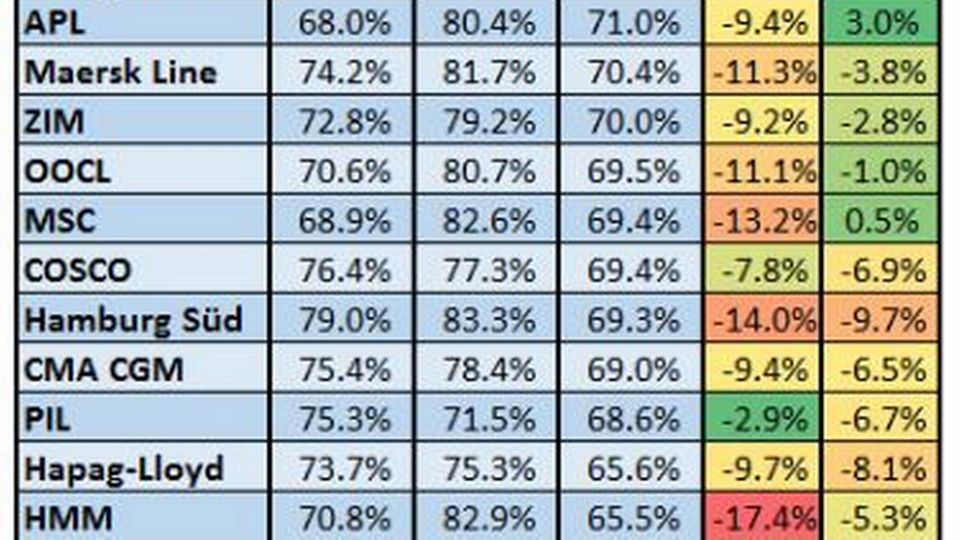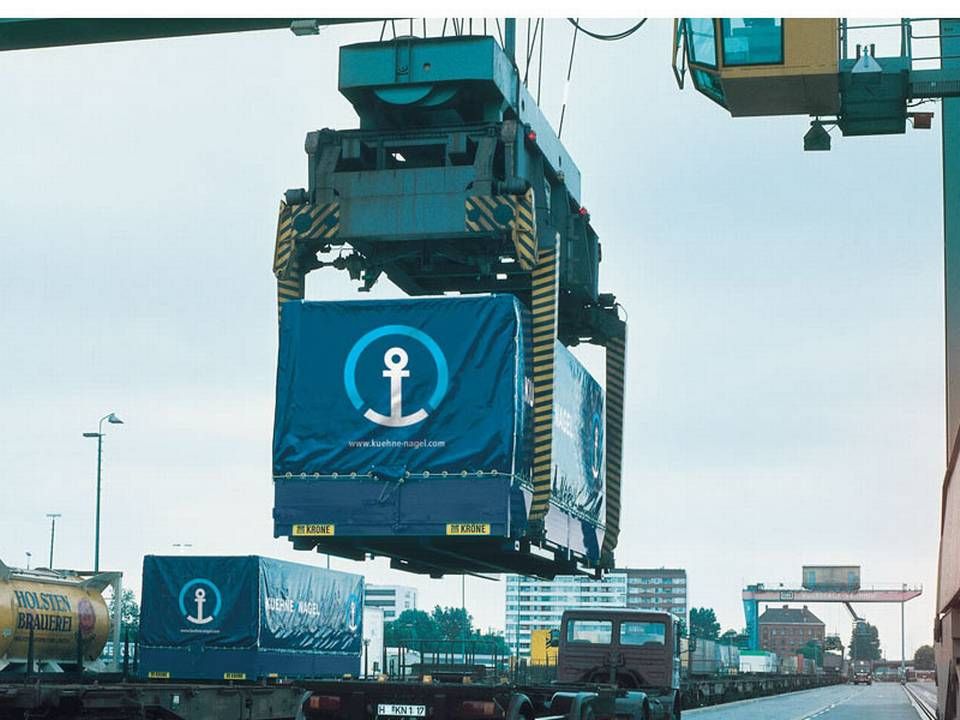Kuehne+Nagel: Container carriers don't react to complaints

As a customer, the current scenario with delayed container ships, which according to several surveys is only getting worse, is just something one has to accept, says Kuehne+Nagel, which as one of the world's biggest freight forwarders depends daily on the service provided by container carriers.
2018 has so far been characterized by severe unreliability in the container transport sector, which according to Schacht, VP and head of global ocean freight solutions, has not improved with the creation of the new alliances so far. In fact, the opposite.
Kuehne+Nagel's experiences confirm the trend recently reported by analyst firm SeaIntel, that roughly one in three container ships do not arrive on time.
"The current level of reliability is a problem and that's why a lot of customers come to us and ask us to help them manage their supply chains instead of the customer dealing with one trade responsible carrier where there are issues," says Schacht.
It is not the first time this year that Kuehne+Nagel comments on this topic to ShippingWatch. Back in March, Paolo Montrone, the group's senior VP and global head of trade, similarly noted that unreliable cargoes strain carriers' schedule reliability.
No use complaining
Even though Schacht sees the decreasing reliability this year as a problem, he says that there is not much to do about it as a customer and user of a certain service.
"We could complain to the carriers about it, but we don't because we know that it is useless to do. We have to accept it and we know what the answer would be if we did complain," says Schacht:
"For instance that the carriers don't have enough vessels in to service or they have rescheduled because of the alliances. Complaining doesn't help."
Kuehne+Nagel CEO: Container industry has a problem
He adds that the liner companies already know where there are problems with schedule reliability, and that they are constantly looking at the situation to make adjustments.
The latter was the case when the 2M alliance between Maersk Line and MSC changed its route network plan for Asia-North Europe in an effort to improve reliability.
Doing its own monitoring
In order to be able to document the scope of delays, Kuehne+Nagel has begun to analyze the situation and to measure its suppliers' reliability.
Unlike SeaIntel, which compares the world's biggest liner companies directly against each other, the freight forwarder instead looks at the individual services, which according to Schacht gives Kuehne+Nagel a better operating basis.
"We use all carriers and we constantly watch which services are more reliable, and that's how we adjust our cargo allocation," he tells ShippingWatch.
"Some customers don’t expect a very high reliability as they go for the cheapest price whereas other customers have a whole supply chain that depends very much on reliability," says Schacht, adding that Kuehne+Nagel in its survey has seen reliability starting to improve again.
Only two out of three arrive on time
SeaIntel recently reported that liner companies' combined scheduled reliability came to 6.4 percent in the first three months of the year. This was almost 10 percent lower than at the end of 2017 and 6 percent lower than the same quarter last year.
Schedule reliability also differed in terms of the alliances. Ocean Alliance was the most reliable container alliance in the quarter, followed by 2M and then THE Alliance.

When Kuehne+Nagel's Danish competitor DSV recently published its results, CFO Jens Lund told ShippingWatch that schedule reliability is "a service parameter the shipping companies need to work on."
"This is the reality we live in, an it ultimately hurts the customers. We help soften these things for the customers, and that's really where we see our role. So of course we're telling the shipping companies that we want quality service in this regard," said Lund.
Will never reach 100 percent
On the long term, Schacht still expects an improvement, which will be triggered by, among other factors, the new container alliances settling in for good.
But it should never be fully expected that delays can be avoided entirely for container ships, as they can be impacted by a variety of factors during sailing, for instance waiting time in ports or at places such as the Suez Canal, says the Kuehne+Nagel VP.
"The deterioration we've seen in the first had to do with the transition phase of the new alliances. I believe that we will see the reliability improve eventually, but I will never be at 90% or better, this is the nature of this industry," says Schacht.
English Edit: Daniel Logan Berg-Munch
Kuehne + Nagel: Unreliable cargoes strain shipowners' schedule reliability
Kuehne+Nagel grew 5 percent in sea freight
Flexport looking to enter big league with DSV and Kuehne+Nagel
Related articles
Kuehne+Nagel grew 5 percent in sea freight
For subscribers



















